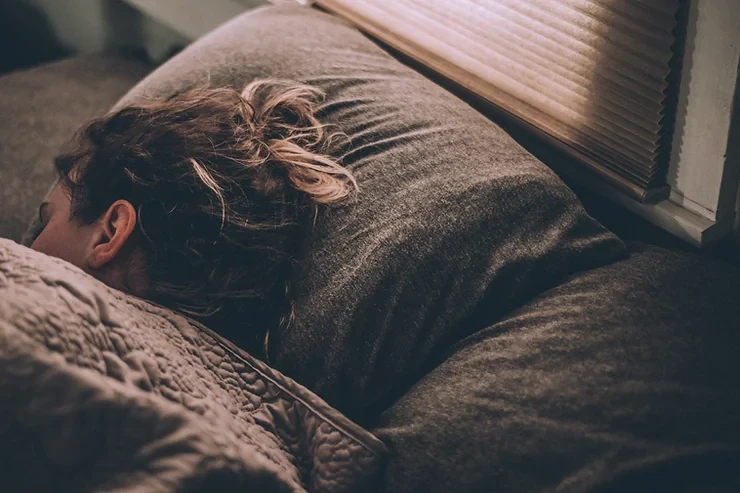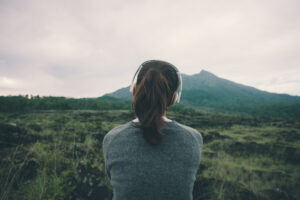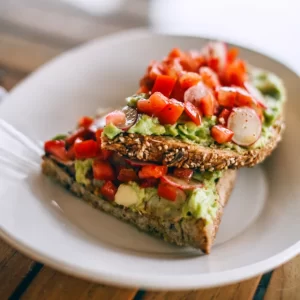
What Poor Sleep Does to Your Tinnitus?
Sleep is not rest—it’s repair. When you don’t sleep well, your nervous system doesn’t get the time it needs to recover and it makes

1. Stick to a sleep schedule
We should aim to go to bed and wake up at the same time each day. People generally have a hard time adjusting to changes in sleep patterns. Unfortunately sleeping late on weekends doesn’t make up for poor sleep during the week. If necessary, set an alarm for bedtime. Matthew emphasizes this is the #1 priority from the list; stick to a regular sleep schedule.
2. Don’t exercise too late in the day
Exercise is great, and we should try to exercise at least 30 minutes on most days. But try to time it no later than 2-3 hours before bed.
3. Avoid caffeine & nicotine
Colas, coffee, teas (that aren’t herbal), and chocolate contain caffeine, which is a stimulant. Even consuming these in the afternoon can have an effect on your sleep. Nicotine is also a mild stimulant, and smokers will often wake up earlier than they would otherwise, due to nicotine withdrawal.
4. Avoid alcoholic drinks before bed
The presence of alcohol in the body can reduce your REM sleep, keeping you in the lighter stages of sleep.
5. Avoid large meals and beverages late at night
A light snack before bed is okay, but a heavy meal can cause digestive issues, which interferes with sleep. Drinking too many fluids can cause frequent awakenings to urinate.
6. Avoid medicines that delay or disrupt your sleep (where possible)
Some commonly prescribed medications, even for tinnitus, as well as some over the counter and herbal medicines can disrupt sleep patterns. If you have trouble sleeping, it may be worth speaking to your doctor to see if any of the drugs you’re taking may be contributing to this. It may be possible to take them earlier in the day.
7. Don’t nap after 3pm
Naps are great, but taking them too late in the day can make it hard to fall asleep at night.
8. Make sure to leave time to relax before bed
It’s important to have time before bed to unwind. Try to schedule your days so that there is time to relax before bed.
9. Take a hot bath before bed
The drop in body temperature after a hot bath or shower may help you to feel sleepy, slow down and relax before bed. This is what helped me most.
10. Have a dark, cool temperature, gadget free bedroom
We sleep better at night if the temperature in the room is kept on the cool side. Gadgets such as mobile phones and computers can be a distraction. Additionally the light they emit, especially blue light, suppresses the secretion of melatonin which regulates sleep/wake cycles and helps the body to relax at night inducing sleep. There are things we can do to reduce the blue light at night, including:
– Using blue light filters on our phones & tablets and PC or MAC. It is called Night Shift, Twilight, f.lux, Night Light.
– Using blue light filters on our home lighting system.
– You can also use blue light blocking glasses, which is very cheap and very effective solution.
A comfortable mattress and pillow can set you up for a good sleep. Those with insomnia will often watch the clock. Turn it away from view so you don’t have to worry about the time while trying to sleep. Use these tips to optimise your sleeping space.
11. Get the right sunlight exposure
Sun exposure during the day helps us to regulate sleeping patterns. Try to get outside in the natural sunlight for at least 30 minutes per day.
12. Don’t stay in bed if you (really) can’t sleep
If you find yourself still in bed for more than 20 minutes, or you’re starting to get anxious in bed, get up and do something else until you feel sleepy. Anxiety whilst trying to sleep can make it harder to fall asleep.
13. Avoid silence by using sound enrichment while you sleep. It can be nature sounds which come through the window, refrigerator, aquarium or any other sounds.
Find more in the book – I cured my Tinnitus.

Sleep is not rest—it’s repair. When you don’t sleep well, your nervous system doesn’t get the time it needs to recover and it makes

Here are 10 common triggers and what to do instead.

Be inspired by the healthiest men and women on earth

5 tips to feel safe when traveling by plane with tinnitus
